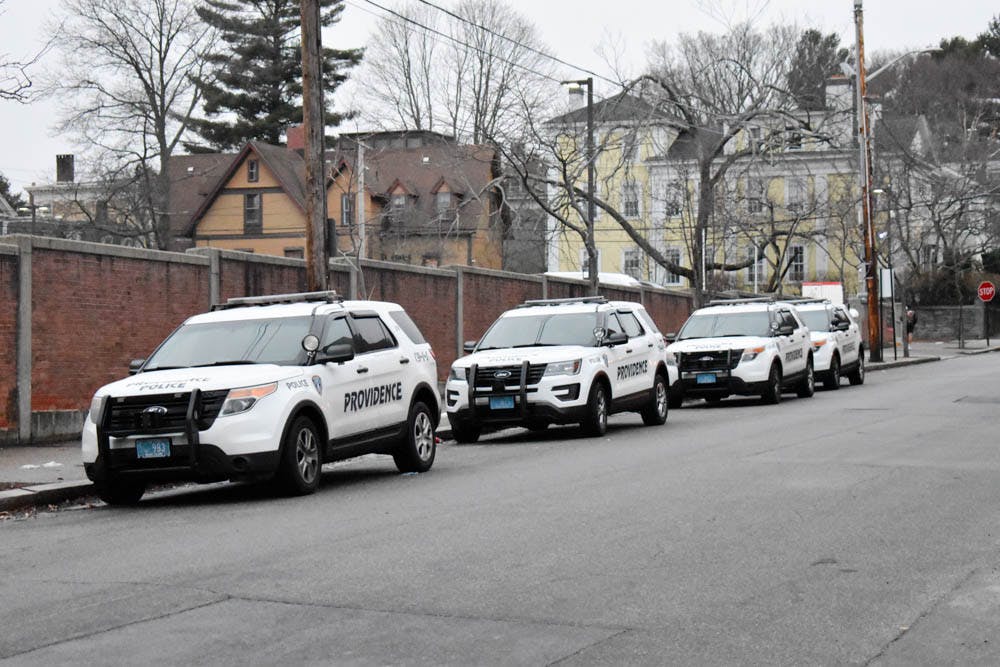The Providence Police Department has arrested and charged four male teenagers with manslaughter and conspiracy in the August 2019 death of Manuel Delacruz, a 50-year-old man who was homeless at the time of his assault.
Delacruz was allegedly assaulted by the teenagers in July and suffered serious trauma to his face and abdomen. He later died from his injuries. Delacruz’s death was ruled a homicide, according to Lindsay Lague, public information officer for the PPD.
The juveniles charged in the case were identified as suspects through investigations by PPD detectives, Lague wrote in an email to The Herald. Because the investigation is ongoing, Lague declined to comment further on the evidence that led to the suspects’ arrests.
It is still unclear whether the teenagers will be tried as juveniles or adults. Cases involving juveniles are generally processed through family court, said Kristy dosReis, public information officer for the Rhode Island Attorney General. Ultimately, the decision to try a juvenile as an adult is made by the court and prosecutor on a case-by-case basis and “depends on the nature of the crime,” dosReis said.
Members of Rhode Island housing security advocacy groups have reacted to this homicide with grief, but are quick to emphasize that it is not an isolated incident among people experiencing homelessness.
“I’m horrified by it, but unfortunately, I’m not surprised, and I wish I were,” said Megan Smith, a member of Rhode Island’s Homeless Bill of Rights Defense Committee. While “this is a particularly extreme example of violence against people experiencing homelessness,” other violent incidents are not uncommon, she added. But according to Lague, extreme acts of violence against this population “(do) not happen regularly,” although PPD does not specifically track homicides involving homeless people.
Michael Gold ’20, co-executive director of University student group Housing Opportunities for People Everywhere, said Delacruz’s homicide was “among a string” of violent assaults in 2019 against people experiencing homelessness.
In January 2019, Eileen Boarman was stabbed in the left hand by a passerby while sleeping in a tunnel by Waterplace Park. There are also acts of harassment against those experiencing homelessness that go unreported, according to Ralph Davis of Street Sights, a publication written by, for and about people who have been homeless. These incidents include individuals experiencing homelessness being shot with paint guns, being kicked and having drinks poured on them.
According to Smith, attacks on the homeless population often go unreported due to distrust of police and uncertainty that law enforcement “are going to do right by them.” In the past, Smith said she has seen cases in which victims who are homeless report their assaults and are blamed for their own attacks because of their circumstances. She cited a general prejudice against people experiencing homelessness in the criminal justice system.
Gold, Smith and HOPE Co-Executive Director Will Gomberg ’20 all agreed that providing affordable housing and creating infrastructure to ensure people stay safe in that housing are essential to preventing future assaults like Delacruz’s and Boarman’s.
“Folks get their stuff stolen, folks experience violence, folks experience assault, and this is because we haven’t provided them adequate shelter and the resources to live a safe and dignified life,” said Gomberg.
Beyond providing housing, Smith said a major task in solving issues related to homelessness is creating more opportunities for “positive exposure” between the general public and the homeless population. These opportunities could help counter brief negative encounters such as avoiding homeless people sitting in parks or rolling up car windows around people who appear to be homeless. Smith said she believes this change would create an “erratically different society” that would mitigate current negative attitudes among the public, which she said enable policies that disadvantage homeless people in housing, employment, healthcare and public education systems.
“That’s what homelessness is; it is folks who are failed by all of our other systems that are meant to care for them,” said Smith. “It’s not benign. It’s not like (the systems are) just failing. It’s that they’re designed to oppress.”
Within the University community, HOPE uses political advocacy to address the structural changes necessary to tackle homelessness, Gomberg said. This semester, HOPE will lobby and canvass with their community partners at the Rhode Island Statehouse to get a number of bills passed to protect and assist those experiencing homelessness.
“You need to address the immediate needs of folks,” Gomberg said, “while acknowledging it’s really just a Band-Aid to these larger systemic issues that are facing folks experiencing homelessness and poverty.”





